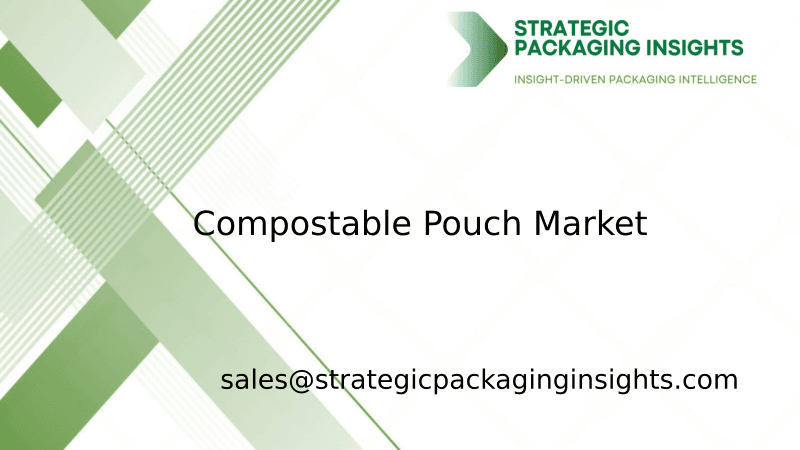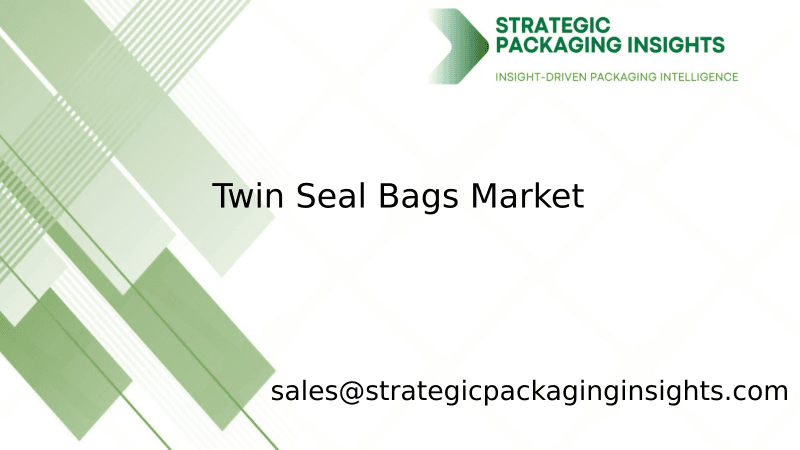- Home
- Beverage Packaging
- India Aluminum Beverage Can Market Size, Future Growth and Forecast 2033
India Aluminum Beverage Can Market Size, Future Growth and Forecast 2033
India Aluminum Beverage Can Market Segments - by Material (Recycled Aluminum, Virgin Aluminum), Application (Carbonated Soft Drinks, Alcoholic Beverages, Fruit and Vegetable Juices, Energy Drinks, Others), Capacity (Less than 200ml, 200ml to 500ml, More than 500ml), End-User (Beverage Manufacturers, Retailers, Distributors, Others) - Market Dynamics, Growth Opportunities, Strategic Drivers, and PESTLE Outlook (2025–2033)
India Aluminum Beverage Can Market Outlook
The India Aluminum Beverage Can market was valued at $1.2 billion in 2024 and is projected to reach $2.5 billion by 2033, growing at a CAGR of 8.5% during the forecast period 2025–2033. This growth is driven by increasing consumer preference for sustainable and recyclable packaging solutions, coupled with the rising demand for convenient and portable beverage packaging. The market is also benefiting from the expanding beverage industry in India, which is seeing a surge in both alcoholic and non-alcoholic beverage consumption. The shift towards eco-friendly packaging due to environmental concerns and government regulations further propels the demand for aluminum beverage cans, which are 100% recyclable and have a lower carbon footprint compared to other packaging materials.

Despite the promising growth prospects, the market faces challenges such as fluctuating raw material prices and the availability of cheaper alternatives like PET bottles. Regulatory constraints related to environmental standards and recycling mandates also pose significant hurdles for market players. However, the potential for growth remains substantial, driven by innovations in can design and manufacturing processes that enhance product appeal and functionality. The increasing penetration of organized retail and e-commerce platforms in India further supports market expansion by improving product accessibility and consumer reach.
Report Scope
| Attributes | Details |
| Report Title | India Aluminum Beverage Can Market Size, Future Growth and Forecast 2033 |
| Base Year | 2024 |
| Historic Data | 2017-2023 |
| Forecast Period | 2025-2033 |
| Number of Pages | 192 |
| Material | Recycled Aluminum, Virgin Aluminum |
| Application | Carbonated Soft Drinks, Alcoholic Beverages, Fruit and Vegetable Juices, Energy Drinks, Others |
| Capacity | Less than 200ml, 200ml to 500ml, More than 500ml |
| End-User | Beverage Manufacturers, Retailers, Distributors, Others |
| Customization Available | Yes* |
Opportunities & Threats
The India Aluminum Beverage Can market presents significant opportunities driven by the growing trend of sustainability and environmental consciousness among consumers. As more consumers become aware of the environmental impact of packaging materials, there is a rising demand for recyclable and eco-friendly options. Aluminum cans, being 100% recyclable, are increasingly preferred over plastic and glass alternatives. This shift is further supported by government initiatives promoting sustainable practices and the use of recyclable materials. Additionally, the increasing urbanization and changing lifestyle patterns in India are leading to a higher consumption of ready-to-drink beverages, which in turn boosts the demand for aluminum beverage cans.
Another opportunity lies in the innovation and technological advancements in can manufacturing. Companies are investing in research and development to produce lightweight cans that reduce material usage and transportation costs while maintaining strength and durability. The development of smart cans with features like temperature indicators and augmented reality labels is also gaining traction, offering a unique consumer experience and enhancing brand engagement. Furthermore, the expansion of the beverage industry, particularly in segments like energy drinks and craft beers, provides a lucrative market for aluminum cans, as these segments often prefer premium packaging solutions to differentiate their products.
However, the market is not without its threats. The volatility in aluminum prices can significantly impact production costs and profit margins for manufacturers. Additionally, the competition from alternative packaging materials, such as PET bottles and tetra packs, poses a challenge, as these materials are often perceived as more cost-effective. The stringent environmental regulations and recycling mandates also require companies to invest in sustainable practices and technologies, which can increase operational costs. Moreover, the market faces the threat of counterfeit products, which can undermine brand reputation and consumer trust.
Market Share Analysis
The competitive landscape of the India Aluminum Beverage Can market is characterized by the presence of several key players who dominate the market with their extensive product portfolios and strong distribution networks. The market is highly consolidated, with a few major companies holding a significant share. These companies are focusing on strategic partnerships, mergers, and acquisitions to expand their market presence and enhance their product offerings. The competition is intense, with players investing in research and development to innovate and offer differentiated products that cater to the evolving consumer preferences.

Ball Corporation is one of the leading players in the market, known for its innovative can designs and sustainable packaging solutions. The company has a strong presence in India and is continuously expanding its production capacity to meet the growing demand. Another major player, Crown Holdings, Inc., is recognized for its advanced manufacturing technologies and commitment to sustainability. The company offers a wide range of aluminum beverage cans and has a robust distribution network across India.
Hindalco Industries Limited, a subsidiary of the Aditya Birla Group, is a prominent player in the Indian market, offering high-quality aluminum products, including beverage cans. The company focuses on sustainability and innovation, with significant investments in research and development. Rexam PLC, now part of Ball Corporation, is another key player known for its extensive product range and strong customer relationships. The company has a significant market share and is committed to delivering sustainable packaging solutions.
Other notable companies in the market include Can-Pack India Pvt. Ltd., which is known for its state-of-the-art manufacturing facilities and high-quality products. The company has a strong focus on sustainability and innovation, offering a wide range of aluminum beverage cans. Orora Limited, a global packaging company, is also a key player in the market, providing innovative and sustainable packaging solutions. The company has a strong presence in India and is continuously expanding its product offerings to meet the growing demand.
Key Highlights
- The India Aluminum Beverage Can market is projected to grow at a CAGR of 8.5% from 2025 to 2033.
- Increasing consumer preference for sustainable and recyclable packaging solutions is driving market growth.
- Technological advancements in can manufacturing are leading to the development of lightweight and smart cans.
- The expanding beverage industry in India is boosting the demand for aluminum beverage cans.
- Government initiatives promoting sustainable practices are supporting market expansion.
- Fluctuating raw material prices pose a challenge to market players.
- Competition from alternative packaging materials like PET bottles is a significant threat.
- Key players are focusing on strategic partnerships and acquisitions to enhance their market presence.
- Innovations in can design and manufacturing processes are enhancing product appeal and functionality.
- The market is highly consolidated, with a few major companies holding a significant share.
Top Countries Insights
In the India Aluminum Beverage Can market, Maharashtra stands out as a leading region with a market size of $300 million and a CAGR of 9%. The state's robust industrial infrastructure and high beverage consumption rates drive demand. Government policies supporting sustainable packaging further bolster growth. Karnataka follows with a market size of $250 million and a CAGR of 8%, driven by its thriving beverage industry and increasing consumer preference for eco-friendly packaging. Tamil Nadu, with a market size of $200 million and a CAGR of 7%, benefits from its strong manufacturing base and rising demand for ready-to-drink beverages.

Gujarat, with a market size of $180 million and a CAGR of 6%, is another key region, supported by its strategic location and well-developed logistics network. The state's focus on sustainability and innovation in packaging solutions contributes to market growth. Lastly, Delhi NCR, with a market size of $150 million and a CAGR of 5%, is driven by its large consumer base and increasing urbanization. The region's emphasis on sustainable practices and government initiatives promoting recyclable packaging further support market expansion.
Evolving Market Dynamics (2018–2024) and Strategic Foresight (2025–2033)
The India Aluminum Beverage Can market has undergone significant changes between 2018 and 2024, with a focus on sustainability and innovation. During this period, the market experienced a steady growth rate, driven by increasing consumer awareness of environmental issues and the demand for recyclable packaging solutions. The market size evolved from $800 million in 2018 to $1.2 billion in 2024, with a CAGR of 7%. The segment distribution shifted towards eco-friendly and lightweight cans, with a growing preference for smart packaging solutions.
In the forecast period of 2025 to 2033, the market is expected to witness accelerated growth, with a projected CAGR of 8.5%. The market size is anticipated to reach $2.5 billion by 2033, driven by technological advancements and innovations in can design and manufacturing processes. The regional contribution is expected to see significant changes, with Maharashtra and Karnataka leading the market due to their strong industrial infrastructure and government support for sustainable practices. The technological impact factors include the development of smart cans and lightweight materials, which enhance product appeal and functionality.
Client demand transformations are expected to focus on premium and differentiated packaging solutions, with a growing emphasis on sustainability and eco-friendliness. The strategic imperatives for market players include investing in research and development, forming strategic partnerships, and expanding production capacities to meet the increasing demand. The market dynamics are expected to be influenced by regulatory changes, consumer preferences, and technological advancements, shaping the future landscape of the India Aluminum Beverage Can market.
India Aluminum Beverage Can Market Segments Insights

Material Analysis
The material segment of the India Aluminum Beverage Can market is primarily divided into recycled aluminum and virgin aluminum. Recycled aluminum is gaining traction due to its environmental benefits and cost-effectiveness. The use of recycled aluminum reduces energy consumption and carbon emissions, aligning with the growing consumer preference for sustainable packaging solutions. Companies are increasingly investing in recycling technologies to enhance the quality and availability of recycled aluminum, which is expected to drive market growth.
Virgin aluminum, on the other hand, is preferred for its superior quality and strength, making it suitable for premium and high-end beverage packaging. The demand for virgin aluminum is driven by the expanding beverage industry, particularly in segments like energy drinks and craft beers, which require premium packaging solutions. However, the high cost of virgin aluminum compared to recycled aluminum poses a challenge for market players, leading to a shift towards more sustainable and cost-effective alternatives.
Application Analysis
The application segment of the India Aluminum Beverage Can market includes carbonated soft drinks, alcoholic beverages, fruit and vegetable juices, energy drinks, and others. Carbonated soft drinks hold a significant share of the market, driven by the high consumption rates and the preference for convenient and portable packaging solutions. The demand for aluminum cans in this segment is further supported by the increasing consumer preference for sustainable and recyclable packaging options.
Alcoholic beverages, particularly beer and craft beers, are another major application segment, with a growing demand for premium and differentiated packaging solutions. The use of aluminum cans in this segment is driven by their ability to preserve the quality and taste of the beverage, along with their lightweight and portable nature. The fruit and vegetable juices segment is also witnessing growth, driven by the increasing demand for healthy and natural beverages. The use of aluminum cans in this segment is supported by their ability to protect the product from light and oxygen, preserving its freshness and nutritional value.
Capacity Analysis
The capacity segment of the India Aluminum Beverage Can market is divided into less than 200ml, 200ml to 500ml, and more than 500ml. The 200ml to 500ml segment holds the largest share of the market, driven by the high demand for single-serve and ready-to-drink beverages. The use of aluminum cans in this segment is supported by their convenience, portability, and ability to preserve the quality and taste of the beverage.
The less than 200ml segment is witnessing growth, driven by the increasing demand for small and convenient packaging solutions, particularly in the energy drinks and fruit juices segments. The more than 500ml segment is also experiencing growth, driven by the increasing demand for family-sized and multi-serve packaging solutions. The use of aluminum cans in this segment is supported by their ability to preserve the quality and freshness of the beverage, along with their lightweight and portable nature.
End-User Analysis
The end-user segment of the India Aluminum Beverage Can market includes beverage manufacturers, retailers, distributors, and others. Beverage manufacturers hold the largest share of the market, driven by the high demand for aluminum cans in the production of carbonated soft drinks, alcoholic beverages, and other ready-to-drink beverages. The use of aluminum cans in this segment is supported by their ability to preserve the quality and taste of the beverage, along with their lightweight and portable nature.
Retailers and distributors are also significant end-users, driven by the increasing demand for convenient and portable packaging solutions. The use of aluminum cans in this segment is supported by their ability to enhance product appeal and functionality, along with their sustainability and eco-friendliness. Other end-users include food and beverage service providers, who are increasingly adopting aluminum cans for their convenience, portability, and ability to preserve the quality and taste of the beverage.
India Aluminum Beverage Can Market Segments
The India Aluminum Beverage Can market has been segmented on the basis of
Material
- Recycled Aluminum
- Virgin Aluminum
Application
- Carbonated Soft Drinks
- Alcoholic Beverages
- Fruit and Vegetable Juices
- Energy Drinks
- Others
Capacity
- Less than 200ml
- 200ml to 500ml
- More than 500ml
End-User
- Beverage Manufacturers
- Retailers
- Distributors
- Others
Primary Interview Insights
What is driving the growth of the India Aluminum Beverage Can market?
What challenges does the market face?
How are companies responding to the demand for sustainable packaging?
What role do government initiatives play in the market?
What are the key trends shaping the future of the market?
Latest Reports

The packer bottle market was valued at $3.5 billion in 2024 and is projected to reach $5.8 billion by 2033, growing at a CAGR of 5.2% during the forecast period 2025–2033.

The Canada Nano-Enabled Packaging Food Beverages market was valued at $1.2 billion in 2024 and is projected to reach $3.5 billion by 2033, growing at a CAGR of 12.5% during the forecast period 2025–2033.

The India Aluminum Beverage Can market was valued at $1.2 billion in 2024 and is projected to reach $2.5 billion by 2033, growing at a CAGR of 8.5% during the forecast period 2025–2033.

The fast-food reusable packaging market was valued at $1.2 billion in 2024 and is projected to reach $3.5 billion by 2033, growing at a CAGR of 12.5% during the forecast period 2025–2033.

The pallets market was valued at $59.91 billion in 2024 and is projected to reach $88.69 billion by 2033, growing at a CAGR of 4.5% during the forecast period 2025–2033.

The lamination adhesives market was valued at $2.5 billion in 2024 and is projected to reach $4.1 billion by 2033, growing at a CAGR of 5.8% during the forecast period 2025–2033.

The garment packing machine market was valued at $1.2 billion in 2024 and is projected to reach $2.5 billion by 2033, growing at a CAGR of 8.5% during the forecast period 2025–2033.

The shrink bags market was valued at $3.5 billion in 2024 and is projected to reach $5.8 billion by 2033, growing at a CAGR of 5.2% during the forecast period 2025–2033.

The beverage packaging market was valued at $128 billion in 2024 and is projected to reach $186 billion by 2033, growing at a CAGR of 4.2% during the forecast period 2025–2033.

The North America Freight and Logistics market was valued at $1,200 billion in 2024 and is projected to reach $1,800 billion by 2033, growing at a CAGR of 4.5% during the forecast period 2025–2033.

The Anti-Counterfeiting Packaging market was valued at $105 billion in 2024 and is projected to reach $182 billion by 2033, growing at a CAGR of 6.5% during the forecast period 2025–2033.

The Active and Modified Atmospheric Packaging market was valued at $15.2 billion in 2024 and is projected to reach $25.8 billion by 2033, growing at a CAGR of 6.5% during the forecast period 2025–2033.

The molded fiber packaging market was valued at $7.5 billion in 2024 and is projected to reach $12.3 billion by 2033, growing at a CAGR of 5.8% during the forecast period 2025–2033.

The micro packaging market was valued at $1.2 billion in 2024 and is projected to reach $2.5 billion by 2033, growing at a CAGR of 8.5% during the forecast period 2025–2033.

The Anti-counterfeit Pharmaceuticals Packaging market was valued at $80 billion in 2024 and is projected to reach $150 billion by 2033, growing at a CAGR of 7.5% during the forecast period 2025–2033.

The MDO-PE Film market was valued at $3.5 billion in 2024 and is projected to reach $5.8 billion by 2033, growing at a CAGR of 5.2% during the forecast period 2025–2033.

The compostable pouch market was valued at $1.2 billion in 2024 and is projected to reach $3.5 billion by 2033, growing at a CAGR of 12.5% during the forecast period 2025–2033.

The Smart Packaging market was valued at $23.5 billion in 2024 and is projected to reach $43.5 billion by 2033, growing at a CAGR of 7.2% during the forecast period 2025–2033.

The pharmaceutical glass packaging market was valued at $14.5 billion in 2024 and is projected to reach $22.3 billion by 2033, growing at a CAGR of 4.9% during the forecast period 2025–2033.

The tray liners market was valued at $1.2 billion in 2024 and is projected to reach $2.3 billion by 2033, growing at a CAGR of 6.5% during the forecast period 2025–2033.

The Fan-Out Wafer Level Packaging (FOWLP) market was valued at $1.5 billion in 2024 and is projected to reach $4.2 billion by 2033, growing at a CAGR of 12.5% during the forecast period 2025–2033.

The cartoning machines market was valued at $3.5 billion in 2024 and is projected to reach $5.2 billion by 2033, growing at a CAGR of 4.5% during the forecast period 2025–2033.

The Twin Seal Bags market was valued at $1.2 billion in 2024 and is projected to reach $2.3 billion by 2033, growing at a CAGR of 7.1% during the forecast period 2025–2033.

The Polyvinyl Alcohol (PVA) Films market was valued at $3.5 billion in 2024 and is projected to reach $5.8 billion by 2033, growing at a CAGR of 5.2% during the forecast period 2025–2033.

The Ready-To-Eat Product Packaging market was valued at $95 billion in 2024 and is projected to reach $145 billion by 2033, growing at a CAGR of 4.8% during the forecast period 2025–2033.

The packer bottle market was valued at $3.5 billion in 2024 and is projected to reach $5.8 billion by 2033, growing at a CAGR of 5.2% during the forecast period 2025–2033.

The Canada Nano-Enabled Packaging Food Beverages market was valued at $1.2 billion in 2024 and is projected to reach $3.5 billion by 2033, growing at a CAGR of 12.5% during the forecast period 2025–2033.

The India Aluminum Beverage Can market was valued at $1.2 billion in 2024 and is projected to reach $2.5 billion by 2033, growing at a CAGR of 8.5% during the forecast period 2025–2033.

The fast-food reusable packaging market was valued at $1.2 billion in 2024 and is projected to reach $3.5 billion by 2033, growing at a CAGR of 12.5% during the forecast period 2025–2033.

The pallets market was valued at $59.91 billion in 2024 and is projected to reach $88.69 billion by 2033, growing at a CAGR of 4.5% during the forecast period 2025–2033.

The lamination adhesives market was valued at $2.5 billion in 2024 and is projected to reach $4.1 billion by 2033, growing at a CAGR of 5.8% during the forecast period 2025–2033.

The garment packing machine market was valued at $1.2 billion in 2024 and is projected to reach $2.5 billion by 2033, growing at a CAGR of 8.5% during the forecast period 2025–2033.

The shrink bags market was valued at $3.5 billion in 2024 and is projected to reach $5.8 billion by 2033, growing at a CAGR of 5.2% during the forecast period 2025–2033.

The beverage packaging market was valued at $128 billion in 2024 and is projected to reach $186 billion by 2033, growing at a CAGR of 4.2% during the forecast period 2025–2033.

The North America Freight and Logistics market was valued at $1,200 billion in 2024 and is projected to reach $1,800 billion by 2033, growing at a CAGR of 4.5% during the forecast period 2025–2033.

The Anti-Counterfeiting Packaging market was valued at $105 billion in 2024 and is projected to reach $182 billion by 2033, growing at a CAGR of 6.5% during the forecast period 2025–2033.

The Active and Modified Atmospheric Packaging market was valued at $15.2 billion in 2024 and is projected to reach $25.8 billion by 2033, growing at a CAGR of 6.5% during the forecast period 2025–2033.

The molded fiber packaging market was valued at $7.5 billion in 2024 and is projected to reach $12.3 billion by 2033, growing at a CAGR of 5.8% during the forecast period 2025–2033.

The micro packaging market was valued at $1.2 billion in 2024 and is projected to reach $2.5 billion by 2033, growing at a CAGR of 8.5% during the forecast period 2025–2033.

The Anti-counterfeit Pharmaceuticals Packaging market was valued at $80 billion in 2024 and is projected to reach $150 billion by 2033, growing at a CAGR of 7.5% during the forecast period 2025–2033.

The MDO-PE Film market was valued at $3.5 billion in 2024 and is projected to reach $5.8 billion by 2033, growing at a CAGR of 5.2% during the forecast period 2025–2033.

The compostable pouch market was valued at $1.2 billion in 2024 and is projected to reach $3.5 billion by 2033, growing at a CAGR of 12.5% during the forecast period 2025–2033.

The Smart Packaging market was valued at $23.5 billion in 2024 and is projected to reach $43.5 billion by 2033, growing at a CAGR of 7.2% during the forecast period 2025–2033.

The pharmaceutical glass packaging market was valued at $14.5 billion in 2024 and is projected to reach $22.3 billion by 2033, growing at a CAGR of 4.9% during the forecast period 2025–2033.

The tray liners market was valued at $1.2 billion in 2024 and is projected to reach $2.3 billion by 2033, growing at a CAGR of 6.5% during the forecast period 2025–2033.

The Fan-Out Wafer Level Packaging (FOWLP) market was valued at $1.5 billion in 2024 and is projected to reach $4.2 billion by 2033, growing at a CAGR of 12.5% during the forecast period 2025–2033.

The cartoning machines market was valued at $3.5 billion in 2024 and is projected to reach $5.2 billion by 2033, growing at a CAGR of 4.5% during the forecast period 2025–2033.

The Twin Seal Bags market was valued at $1.2 billion in 2024 and is projected to reach $2.3 billion by 2033, growing at a CAGR of 7.1% during the forecast period 2025–2033.

The Polyvinyl Alcohol (PVA) Films market was valued at $3.5 billion in 2024 and is projected to reach $5.8 billion by 2033, growing at a CAGR of 5.2% during the forecast period 2025–2033.

The Ready-To-Eat Product Packaging market was valued at $95 billion in 2024 and is projected to reach $145 billion by 2033, growing at a CAGR of 4.8% during the forecast period 2025–2033.